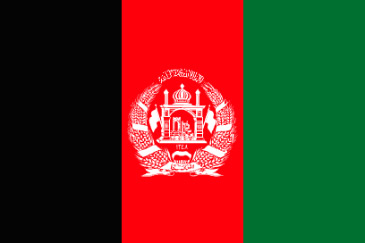The Earth is experiencing unprecedented numbers of refugees and asylum seekers – people who have left their countries of birth, desperate to escape dire economic and environmental circumstances or threats to themselves and their families. They are looking to find a new home in another, more stable country. There are also record numbers of internally-displaced people (IDP) – people in the same situation, fleeing their homes but staying within their country of nationality.
Once a refugee, asylum seeker or IDP reaches a place of sanctuary, their struggles are far from over: they need permanent, affordable housing, the adults need jobs, the children need to be enrolled in school, the entire family needs language instruction in the local language, they need to know how to access health care (including dental care), they need to know how to access things like playing soccer at school or in a local league, when shops are closed for various holidays they may not be aware of, how to open a bank account, how to use mass transit, how the garbage system works, and on and on and on. It’s a huge amount of help that’s required.
Nonprofits, government programs and systems designed to help refugees are overwhelmed. In the USA, refugees and asylum seekers receive most of the help they need from VOLUNTEERS – people who are donating their time to help, time that competes with work and family requirements. And there are not enough volunteers to help address all the needs that refugees have, not in the USA and not in most other countries.
Before you start pursuing a volunteering gig abroad to help refugees, I beg you to look for opportunities in your own community. I live in a small town in Oregon and have discovered volunteering opportunities all around me to help refugees from Sudan, Afghanistan, Ukraine, Somalia and more. I have seen similar opportunities not too far from my hometown in Western Kentucky to help Afghan refugees.
I’m volunteering to help a family that is just around the corner from me. I’m volunteering through Portland Refugee Support Group. So far, I’ve:
- found information already in Arabic from various government offices.
- helped the children 16 and over, only two of whom speaks English, apply for jobs (three have found employment).
- helped the oldest child, who is 20, find free English classes.
- explained how to try out for the high school soccer team for the 16-year-old interested in such.
- explained how Thanksgiving and Christmas affect store closings, bank closings and traffic.
- taken the mom to the Halal groceries.
- read through their postal mail and explained what they are receiving.
- explained how the green card and citizenship process works (the official web site of the US government has complete details, plus I helped a family member of my own get a green card).
- recruited two other volunteers to help (and I’m working on more).
Google Translate has been essential in communicating with most of the family members, but I can translate only two or three sentences at a time using that tool. Through my Reddit activities, I connected with a young woman abroad who is fluent in Arabic and wanted to volunteer as a translator – she translates large amounts of text for me, like explaining how the garbage bill works.
Other volunteers have helped with jobs research and interviews, as well as transportation, filling out government program applications, moving items, even getting a Christmas tree. One volunteer just drives the mom to the grocery once a month, nothing else – and that’s GREAT!
You can volunteer as much or as little as you want to – you don’t have to volunteer every day or even every week. You can volunteer just once a month. But you need to help on an ongoing basis. And when you sign up, you will need to go through a criminal background check and a short training – and the training will probably be online.
How do you find opportunities to work with refugees and asylum seekers near you? You go to Google and type in the name of your city, or the nearest big city, and the phrase help refugees and nonprofit (that’s how I signed up to volunteer where I live). You might find such opportunities on VolunteerMatch as well.
I signed up initially just to help with recruitment of more volunteers. I had no intention of working with refugees directly, because I live far from the center of the nearest metropolitan area, and most of the refugees live far from me. But after just two months, it turned out there was a refugee family right around the corner from me, and my help was welcomed.
I recommend volunteering through an existing nonprofit that helps refugees. But if you are ready to take on a lot more responsibility, including fundraising, and you are in the USA, note that, the Department of State, in collaboration with the Department of Health and Human Services, has created the Welcome Corps, a new private sponsorship program that empowers everyday Americans to play a leading role in welcoming refugees arriving through the U.S. Refugee Admissions Program (USRAP) and supporting their resettlement and integration as they build new lives in the United States. Groups of at least five individual American citizens or permanent resident adults will be able to apply to the Welcome Corps to privately sponsor the resettlement of refugees in the United States. Private sponsors, as volunteers, will be responsible for independently raising funds and directly providing essential assistance to refugees for their first 90 days in their new community. This assistance includes helping refugees find housing and employment, enrolling children in school, and connecting refugees to essential services in the community. Sponsors must raise a minimum of $2,275 in cash and in-kind contributions per refugee newcomer being welcomed. This is used to secure and furnish housing and provide for the refugee’s initial basic needs.
As for me, speaking as a volunteer through PRSG helping one family here in the town were I live, as a part of a team of three volunteers: it hasn’t been easy and sometimes, it’s been quite stressful. They need an enormous amount of help, far more than we can give. And the more successful I’ve been as a volunteer, the more I’ve been asked to do. It’s been essential for me to be realistic about the time I really can give and to set boundaries, and to recruit other volunteers to help.
If you are volunteering with refugees in the USA, or want to, you might find this resource helpful: Helping Refugees In Your Own Country. It’s USA-centric, but is adaptable to other countries. It outlines exactly the kind of help refugees need that you, as a neighbor, can realistically help with.

If you have benefited from this blog, my other blogs, or other parts of my web site and would like to support the time that went into researching information, developing material, preparing articles, updating pages, etc. (I receive no funding for this work), here is how you can help.


